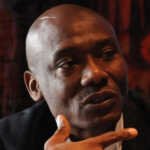The situations of Emmanuel Adebayor Sheyi and Didier Drogba regarding their respective national teams, Togo and Ivory Coast, demonstrate the complexities that can arise between players and national team coaches.
Didier Drogba and Ivory Coast: Didier Drogba, initially considering international retirement after the 2012 African Cup of Nations (CAN), later reversed his decision to continue representing Ivory Coast. However, he has found himself unintentionally sidelined by coach Lamouchi. Despite Drogba’s absence, Ivory Coast has continued to perform well, securing qualification for the third and final round of World Cup qualifiers for Brazil 2014. The question raised is whether Drogba’s presence would significantly impact the team’s performance. Coach Lamouchi, while acknowledging Drogba’s potential value, has continued to focus on the team’s success without him. Drogba’s future role in the national team seems contingent on his fitness and the coach’s decisions.
Emmanuel Adebayor and Togo: Emmanuel Adebayor’s relationship with Togo’s coach, Didier Six, has been strained, leading to Adebayor’s absence from the national team during the last three official matches, including the double confrontation against Cameroon and a meeting against Libya. Togo secured only 3 points in Adebayor’s absence, effectively ending their hopes of qualifying for the World Cup in Brazil. The question arises whether Adebayor’s presence could have made a significant difference. The tension between Adebayor and coach Six raises doubts about Adebayor’s future role with the national team.
In both cases, the decisions regarding the players’ roles in their respective national teams involve a combination of performance considerations, team dynamics, and the relationships between the players and coaches. The complexities of player-coach relationships in international football often require delicate balancing acts to ensure the best interests of both the players and the national teams.











